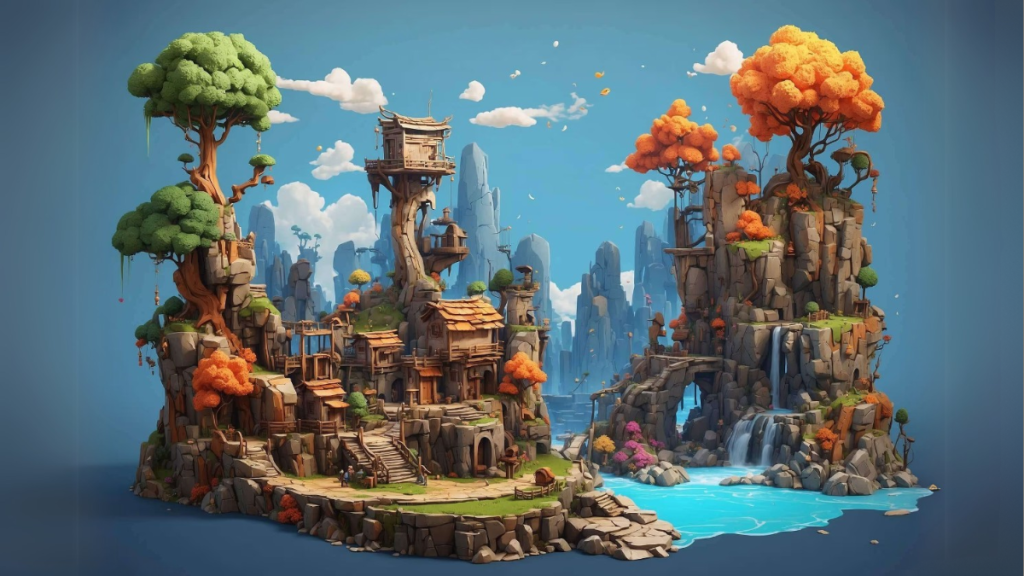Unity game development has emerged as a leading choice for developers looking to create engaging and immersive gaming experiences. With its user-friendly interface and robust capabilities, Unity allows for the creation of both 2D and 3D games, making it a versatile tool for developers of all skill levels. This article delves into the various aspects of custom Unity game development services, highlighting the benefits, processes, and key considerations for businesses looking to harness the power of this dynamic platform.
The Benefits of Custom Unity Game Development
Investing in custom Unity game development services can yield numerous advantages for businesses and developers. Here are some of the key benefits:
Tailored Solutions
Custom game development allows for the creation of unique gaming experiences that align with specific business goals and target audiences. Developers can design gameplay mechanics, storylines, and visual styles that resonate with players, setting their games apart from the competition.
Cost-Effectiveness
By leveraging Unity’s extensive features and resources, developers can create high-quality games without incurring excessive costs. The ability to reuse assets and implement cross-platform functionality further enhances cost efficiency.
Scalability
Unity’s architecture supports scalability, enabling developers to expand their games as needed. Whether adding new levels, characters, or features, Unity makes it easy to grow a game over time, ensuring it remains relevant and engaging for players.
The Custom Unity Game Development Process
Creating a successful game involves a structured development process. Here’s a breakdown of the typical stages involved in custom Unity game development:
1. Discovery Phase
During the discovery phase, developers work closely with clients to understand their vision, objectives, and target audience. This stage involves:
- Market Research: Analyzing competitors and identifying trends within the gaming industry.
- Concept Development: Brainstorming ideas and defining the core gameplay mechanics and narrative.
- Technical Requirements: Establishing the technical specifications and platform compatibility.
2. Pre-Production
In the pre-production phase, developers outline the project scope and create a detailed plan. Key activities include:
- Game Design Document (GDD): Crafting a comprehensive document that outlines the game’s mechanics, story, characters, and art style.
- Prototyping: Developing a basic version of the game to test core mechanics and gather feedback.
- Resource Allocation: Assigning roles and responsibilities to team members based on their expertise.
3. Production
The production phase is where the bulk of the development occurs. This stage involves:
- Asset Creation: Designing and developing 3D models, animations, sound effects, and other game assets.
- Programming: Implementing gameplay mechanics, user interfaces, and other interactive elements using C# scripting.
- Level Design: Creating engaging environments and challenges that enhance the player experience.
4. Testing and Quality Assurance
Quality assurance is crucial to ensure a polished final product. This phase includes:
- Bug Testing: Identifying and fixing any issues that may affect gameplay or performance.
- User Testing: Gathering feedback from players to refine gameplay mechanics and improve user experience.
- Optimization: Ensuring the game runs smoothly across all intended platforms.
5. Launch and Post-Launch Support
Once the game is ready for release, developers focus on launching and supporting the game. This stage involves:
- Marketing and Promotion: Creating a marketing strategy to generate buzz and attract players.
- Post-Launch Updates: Providing ongoing support, including bug fixes, new content, and community engagement.
Conclusion
Custom Unity game development services offer a wealth of opportunities for businesses and developers looking to create unique and engaging gaming experiences. By understanding the development process, leveraging the benefits of Unity, and considering key factors for success, you can unlock the full potential of your game. As the gaming industry continues to evolve, embracing the latest trends and technologies will ensure your game remains relevant and captivating for players around the world.

